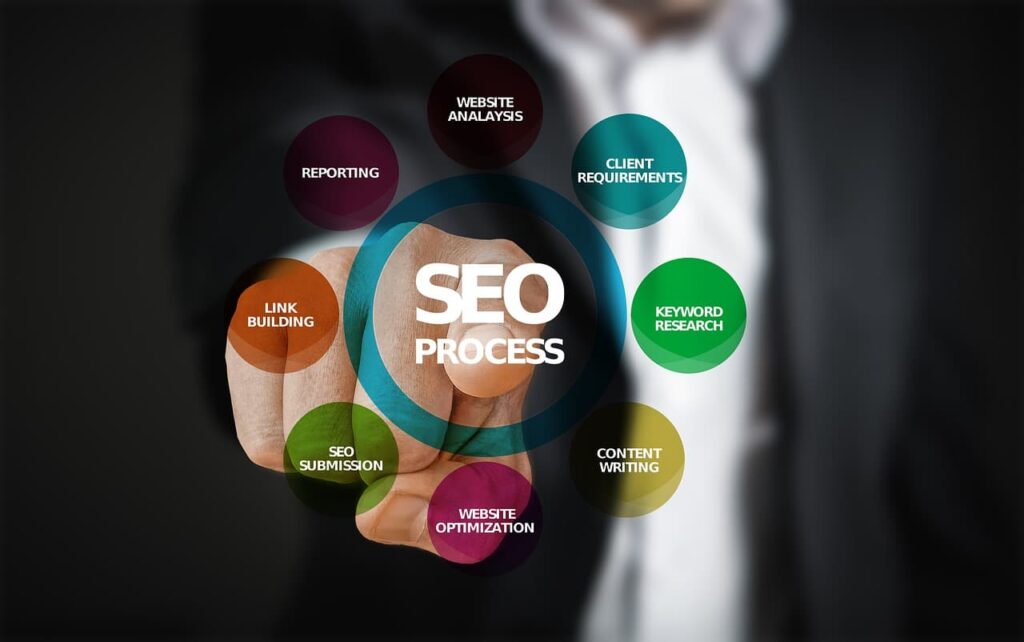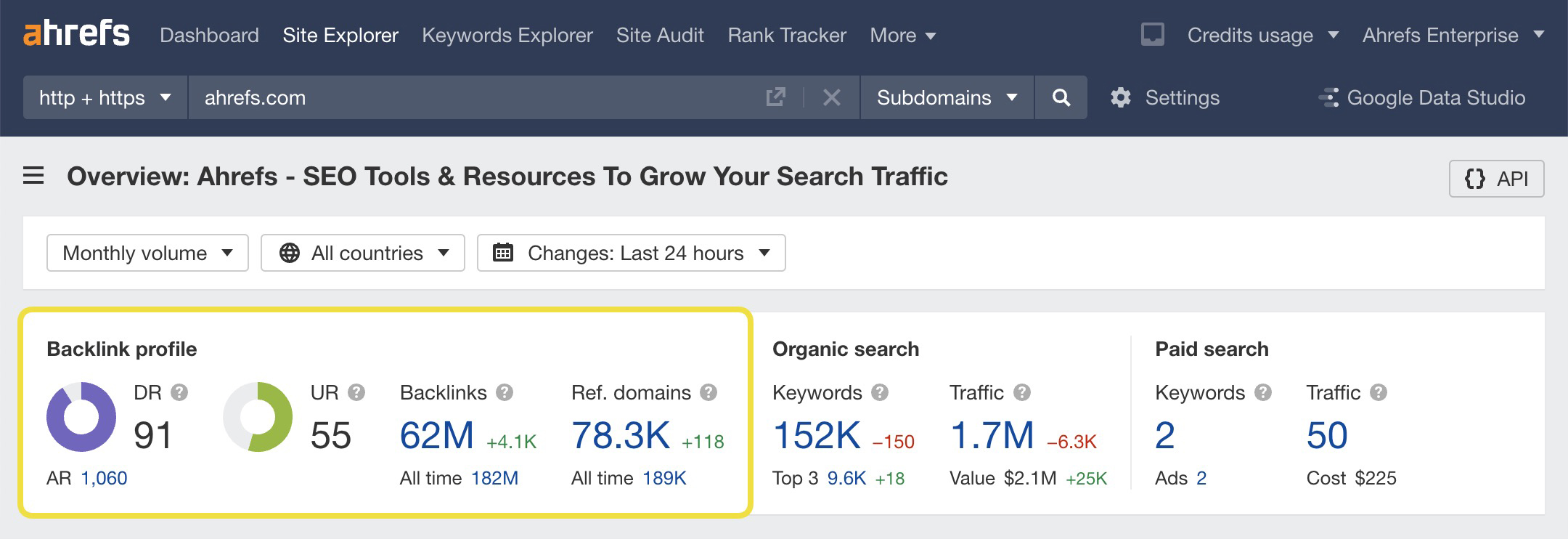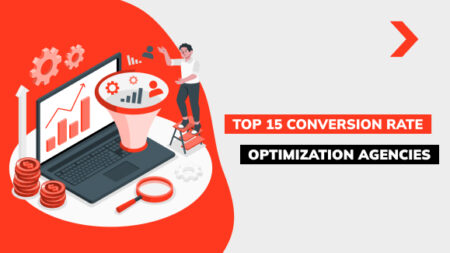Ecommerce SEO: A Comprehensive Guide
Do you want to start your startup? Need help with how to structure the content of your ecommerce site? Or perhaps your business is relatively new, and you’re unsure where to begin with promotion, how to organize the optimization process, etc. E-commerce SEO is something you should consider first, especially if you want your business to become profitable.
However, if a business owner or individual entrepreneur tries their hardest to attract the target audience independently, these efforts won’t yield good results. More often than not, experienced experts are hired to implement SEO for ecommerce, as they can professionally address all issues and tasks. Competent, organized, and structured on-site SEO can help solve many problems related to promoting a business website, but let’s discuss everything in order.

What Is Ecommerce SEO?
First and foremost, it is essential to understand what qualified and modern ecommerce SEO entails. If we break it down, search engine optimization positively impacts the promotion of online businesses. The entire promotion process consists of implementing local, traditional, professional, and technical SEO, meticulously prepared, high-quality, modern tools and technologies that positively influence the e-commerce website(s) of the brand that has commissioned promotion online. In simple terms, improving the website makes it recognizable among users and visible to those looking for specific services or products in search results. Many different strategies can be employed in the optimization process.
Why Is SEO Important for Ecommerce Websites?
The best marketing is word-of-mouth, but the best way to get people talking is through great SEO.
Eric Schmidt, Former CEO of Google
Utilizing an individualized and qualified digital commerce SEO strategy provides numerous benefits when promoting a web resource. It involves the opportunity to gradually develop an ecommerce site and achieve the pinnacle of success — obtaining long-term effects. Additionally, if you have a desire to start a startup, building your brand already taking into account the implementation of local, traditional, professional, technical SEO, and other types will assist not only in becoming more famous online but also in obtaining good positions in Google and other systems, increasing reach and traffic, attracting visitors, enticing them into purchases, and boosting sales of goods and services.

Top Ecommerce Platforms for SEO
Before diving into the details of choosing a platform to build an Internet store, it’s essential to understand that professional SEO is crucial for the success of a website. This service initiates increased rankings on SERP (Search Engine Results Pages). Once the business’s web platform appears on the first page, it immediately raises the likelihood of attracting Internet users. As a result, the business owner can expect additional visitors and their online purchases. Ecommerce platforms merely assist in achieving SEO goals.
Shopify
It is one of the most popular web platforms, widely used for several reasons. Pros include an intuitive interface, extensive functionality, user-friendliness, available ready-made themes, app integration, and mobile adaptation tools. As for the cons, limited customization options and transaction fees stand out.
Wix
Considered a famous website builder for various web resources. It offers many benefits, from a user-friendly interface and an extensive selection of customizable templates to SEO-ready designs. The platform also allows for mobile site adaptation. However, there are drawbacks, such as limited customization options and the absence of specific tools that large companies need for promotion (therefore, it’s more suitable for small to medium-sized businesses).
BigCommerce
Another widely used platform includes many built-in options and web technologies, has an SEO-friendly structure, offers mobile adaptation tools, and comes with various built-in SEO features necessary for promotion. Additionally, it provides app integration options. As for the downsides, “steep” learning and limited design flexibility are noteworthy.
Magento
One of the most potent modern web platforms, it offers extensive customization options with unique features, SEO-friendly URLs, and the ability to scale business projects for promotion. It also provides excellent flexibility with its tools. The main downsides are its technical complexity, the need for expertise, and its relatively high cost.
WooCommerce
A viral plugin that can turn a website into a fully functional Internet store. Its advantages include complete SEO control, excellent flexibility, easy setup, and the ability to integrate blogs (for example, with WordPress). The main drawbacks are the need for WordPress knowledge, additional hosting, and maintenance requirements.
PrestaShop
One of the fastest and most user-friendly platforms. It offers high speed, extensive functionality, an intuitive interface for management and customization, SEO-friendly options, universal designs, and mobile adaptation capabilities. However, regarding drawbacks, it’s important to note the presence of pricing plans, as additional payments are required for broader platform functionalities.
Understanding Ecommerce SEO and Its Differences
The world of digital marketing is constantly changing, with competition growing each day. Understanding ecommerce SEO allows one to comprehend the existing business models and how to use them correctly. Crafting an excellent and functional digital commerce SEO strategy enables experts to act promptly and step-by-step during the promotion process. Moreover, specialists always know that there are differences in strategy. For instance, B2B (business-to-business) — (focus is on technical SEO and substantive professional content) and B2C (business-to-consumer) — (emphasis is placed on local search, portal mobility, and emotional text creation) — are two different business models that have their specific requirements for website optimization, content marketing application, and customer interaction.
How to Start Ecommerce SEO?
Defining your goals is essential for your brand to thrive and grow successfully. For instance, what does the business aim to achieve specifically? What tasks will help align your products to sell more frequently than your competitors? How can you achieve the desired result? First and foremost, remember that every goal set should be realistic. While every business would like to increase organic traffic by millions of percentages, it’s unattainable. Therefore, setting achievable goals is advisable, such as selling your products in a specific quantity during a particular season, etc. Once you’ve specified your goals, you can proceed with keyword research, selecting long-tail keywords, choosing specific ecommerce keywords, and so on.
Ecommerce SEO Fundamentals
The successful development of Ecommerce Website(s) will only occur when professionals analyze it comprehensively and entirely. Firstly, you can understand which target audience to attract using Google Analytics. Secondly, it’s essential to understand the nuances of the company, enterprise, firm, or organization’s business processes that must be promoted online. The essence lies in the fact that implementing digital commerce SEO should positively impact fundamental elements such as improving the user experience of the portal, understanding the competitive landscape, increasing performance metrics, and much more.
Performing Keyword Research for ecommerce
Keyword research is one of the main stages in the portal promotion process. During the process, specialists pay attention to each ecommerce keyword. The point is that each ecommerce keyword will play a significant role in promotion. These words will be actively used when designing a product page. Essentially, professionals study the keyword intent and its designation and only then use them as additions to informational textual content. The keyword research stage is always a top priority because the lists of compiled low-frequency, medium-frequency, and high-frequency queries will determine how effectively the site will be promoted according to online robot algorithms.
Using Ecommerce Keyword Research Tools
Competent SEO for ecommerce is known to play a crucial role. Keyword research can actively optimize a web resource. For this purpose, various long-tail keywords and keyword ideas are utilized in written content. This includes articles, posts, and texts into which phrases, mini-sentences, quotes, and other selected keyword intent are embedded. All these processes can be summarized under one concept — implementing content marketing. Therefore, e-commerce keyword research is the primary stage, which works on promoting a web resource immediately after analyzing the site.
Understanding Ecommerce Keyword Intent
Keyword research allows understanding the meaning of specific phrases, word combinations, sentences, and quotes. The essence lies in the fact that keyword intent opens up the opportunity to understand which words suit the brand’s theme, the specifics of the company, the business activity, and which words are better not to use. The ecommerce keyword research stage is multi-level because it consists of compiling lists of queries and their distribution (some words are suitable for an online store, others are suitable only for use on product pages or in headings, descriptions, meta tags, etc.).

Optimizing On-Page Elements
For an ecommerce site, using on-page SEO plays a crucial role. After conducting keyword research and selecting keyword ideas, it’s essential to begin implementing other elements. This includes focusing on primary tags and attributes of hypertext markup. For instance, the consistency in placing on-page SEO tags and attributes plays a significant role in category pages. They determine the ease of structure for each web page in the ecommerce store. By interpreting markup language, online robot algorithms automatically start to “recognize and understand” what the web page is about and how its textual content should be displayed. Furthermore, product and category pages will appear in search results when users search for specific groups of products or services.
Optimizing Ecommerce Product Pages
Once again, it’s essential to start with keyword research to optimize product and category pages. Only correctly selected phrases, word combinations, quotes, and expressions can showcase your products favorably, emphasizing their strong points and relevance in the modern market. Specialists optimize category pages in online stores for this purpose. Essentially, all product page(s) will then appear in local search results, significantly impacting the ranking, relevance, and indexing of the ecommerce store.
Improving Site Architecture
Professionals primarily focus on all product pages to make an ecommerce site as user-friendly as possible. Essentially, an online store always has not just one product and category but a large number. Based on this, experts thoroughly plan all category pages from A to Z. This includes headlines, short and long descriptions, the structure of headings, subheadings, and lists in the content. These elements make e-commerce websites more user-friendly and easy for ordinary users, for whom ease of use and website loading speed are among the top priorities.
Schema Markups for Ecommerce
When implementing SEO for e-commerce, it’s crucial to consider the website’s schema markup. This system helps elevate the site to the highest ranking possible. For any Internet store growing on the Internet, this process is vital. Essentially, schema markup entails structured data on each product page, which helps online robot algorithms better understand the content and specifics of the website. Therefore, the content on the product page aids in ranking because it includes comprehensive information (such as names, descriptions, and more) about the product and category, which is crucial for indexing. Thanks to schema markup, it’s possible to instantly create rich snippets, enabling the website to appear higher in search engines for published target keywords.
Technical SEO for Ecommerce
For ecommerce SEO, it is crucial to utilize practical optimization tools. One such tool is technical SEO. It allows positively impacting your brand website by addressing all technical issues. It is known that people always want to make a purchase as quickly as possible. And for this to happen, the digital commerce SEO resource must load as soon as possible. Therefore, professionals address all technical deficiencies at this stage, including restructuring, removing duplicate content, updating unnecessary keywords, adjusting descriptions, and performing other actions.
Ensuring Site Speed and Performance
Everyone wants to purchase as quickly as possible with minimal personal time loss. To achieve this, specialists utilize technical improvement, which significantly influences the performance of the brand’s website. Firstly, it enables convenient website usage (as people dislike waiting). Secondly, speed is crucial for digital commerce SEO, as it affects the algorithms of online robots when ranking pages in search results, considering hundreds of different parameters. Overall, performance will determine whether a potential customer can make a purchase quickly or whether they will leave the site without waiting for the page to load.

Managing Duplicate Content
Conducting a thorough SEO audit will help understand how competently ecommerce SEO is implemented and whether there is too much repetitive content on the brand’s website. If there is too much duplicate text content, it can negatively impact the portal’s promotion. Also, people considering whether to purchase now or leave will notice duplicated content. Managing repetitive content will eliminate all unnecessary textual material from the portal, enabling the brand to achieve its goals and objectives more quickly.
Optimizing URLs and Navigation
Building your brand correctly involves well-chosen URLs and site navigation organization. Even the title tag plays an important role. To help customers make a purchase faster, it is crucial to present all the conditions. This means that internal relinking plays a role. Implementing internal linking will allow portal users to save time by quickly navigating through links to the categories, sections, products, goods, or services they are searching for. This can significantly save potential customers’ time, providing convenient website usage and tangible assistance to customers. Internal linking is a significant time saver, making website usage convenient and providing genuine customer assistance.
Advanced Strategies for Ecommerce SEO
Grow your business by implementing advanced and well-thought-out ecommerce SEO strategies. Creating an advanced, individualized, and competent approach is sufficient to help elevate the website. To devise the highest quality step-by-step action plan, one should utilize Google Analytics for websites and competitors and Google’s step-by-step guide, which outlines sequential actions. An advanced and modern strategy will enable the effective use of digital commerce SEO in any business project and achieve high and maximum results, goals, and objectives.

Content Marketing for Ecommerce
Everyone has heard that creating unique content with ecommerce SEO integration is crucial for any type of business. Some online store owners believe writing an article or a post is necessary to gain traffic and customers. However, that’s not the case. A content strategy encompasses all steps — from audience analysis to market analysis, making adjustments, etc. In simple terms, the approach is needed to develop creative and original content, publish it, and incorporate it into descriptions, metadata, etc.
Creating Unique and Valuable Content
Using ecommerce SEO in texts, informational materials, articles, and posts are only some of it. The informational content must be helpful, easy to understand, structured, and, at most, unique, creative, original, and valuable to both people and online robots’ algorithms. Through content with digital commerce and SEO integration, visitors to the business website will be engaged in purchasing products and services. People will read texts, articles, and posts and understand whether they need to buy a particular product. Therefore, paying special attention to content for all businesses that want to acquire as many customers as possible is essential.
Leveraging Blogging and Content Distribution
By applying ecommerce SEO, the content created by professionals should be distributed in a special section on the promoted portal. Such a section as “Blog” should be on all websites, even if they are online stores or platforms. The content distribution with ecommerce SEO integration should occur by publishing texts, articles, posts, and descriptions on websites. However, there is one trick — informational materials with special links leading to the portal promoted by specialists can also be placed on external platforms. This refers to external improvement, which is very popular.
Link Building Tactics
Link building methods can vary, but creating links in digital commerce SEO is necessary. The essence is that backlinks should be competitively relevant, thematic, and high-quality. Backlinks are essential for search engines like Google and others because these systems use them in ranking algorithms. The more relevant web resources refer to the content, the more popular online robots consider them. Thus, content with backlinks will be displayed in the initial search lists and higher on search engine results pages.
Building High-Quality Backlinks

Creating links with ecommerce SEO integration and anchoring to the promoted web resource is a process where analysts of various popular search engines today review links and determine a strategy to try to get a link back from the target portal to their own. Essentially, involving high-quality backlinks and applying sufficient effort will help significantly improve rankings for specific embedded ecommerce SEO keywords and create overall visibility in Google and other systems for one’s domain. Selecting only high-quality and relevant links when using online marketing technologies is very important.
Utilizing Social Proof and Reviews
Social proof is information about social influence — Internet users essentially align their actions with other visitors to the same web resources, considering their behavior correct. Simply, it’s about a behavior model or mentality that inspires people’s increased trust in something. Using social proof and reviews and competent ecommerce SEO implementation increases users’ trust in the promoted web resource because such information is a powerful incentive for website visitors to take specific actions. Implementing digital commerce SEO further encourages greater customer engagement when purchasing the site.
Measuring and Improving SEO Performance
Implementing various relevant SEO tools is primarily an opportunity to influence the growth of digital metrics. Upon completion, specialists can orient themselves based on measurements and numerical metrics regarding areas that require more effort. With measurable indicators, SEO effectiveness can be significantly improved, as there is an opportunity to implement new, relevant, and modern solutions that will lead to leadership, the pinnacle of success, and the best overall results.
Analytics Tools for ecommerce

Addressing different business tasks during project work is what specialists engage in. Naturally, they practically use additional applications that serve as their online assistants. In most cases, professionals employ analytical tools for ecommerce that contribute to increased productivity. These include the standard program “Excel” (essential software solving multiple tasks), “Balsamiq” (a practical program designed for robust layout development), “Visio” (digital product aiding in tasks between programmers and managers), “Jira” (software intended for supervising business projects), “Confluence” (online platform allowing structuring informational data about the promoted company). There are many tools, and each expert uses the ones most convenient for them.
Interpreting Key Metrics
Thanks to effective KPI indicators, a clear picture of managing a business project can be provided. Good KPIs are always measurable; these indicators help accomplish strategic tasks and provide information for resource planning. Additionally, the indicators help track aspects that specialists can control and those on which experts can directly influence. Usually, KPI indicators are linked to strategic tasks, providing specialists with a clear understanding of their projects’ contribution to achieving the goals of the promoted enterprise, company, organization, or firm through SEO promotion.
Adjusting Strategies for Optimization
Adjusting strategies involves changing pricing in response to market conditions or changes in customer demand. Incremental price increases are part of the overall strategy for enterprises, firms, organizations, and companies seeking to increase profits without alienating customers. Enterprises can gradually raise the cost of products, goods, and services by making minor adjustments over time while minimizing the risk of adverse customer reactions.
| SEO Strategy | Description | Why It Matters for Ecommerce | Action Steps |
|---|---|---|---|
| Keyword Research | Identify high-intent keywords such as “buy [product] online” or “[product] near me.” | Helps attract buyers who are ready to purchase. | – Use tools like Ahrefs, Semrush, or Google Keyword Planner. – Focus on long-tail keywords. |
| Optimized Product Pages | Include targeted keywords in product titles, descriptions, and meta tags. | Improves product visibility in search results. | – Write unique descriptions for each product. – Use enticing meta titles and descriptions. |
| Technical SEO | Ensure a fast-loading, crawlable, and secure website (HTTPS). | Provides a seamless user experience and improves rankings. | – Use tools like Screaming Frog to fix broken links. – Optimize site speed and XML sitemap. |
| Category Page Optimization | Optimize category pages with relevant keywords and internal linking. | Helps users and search engines understand your site structure. | – Add keyword-rich headings and descriptions to category pages. |
| Mobile-Friendly Design | Ensure the website is responsive and easy to navigate on mobile devices. | Most ecommerce shoppers browse and purchase on mobile. | – Test responsiveness and speed on mobile using Google’s Mobile-Friendly Test. |
| URL Structure | Use clean, descriptive URLs for products and categories. | Makes URLs user-friendly and improves search engine crawlability. | – Example: /mens-running-shoes/ instead of /product1234/. |
| Image Optimization | Use high-quality images with optimized file sizes and descriptive alt text. | Enhances load speed and search engine understanding of product images. | – Compress images using tools like TinyPNG. – Include keywords in alt tags and file names. |
| User-Generated Content | Encourage reviews, ratings, and testimonials on product pages. | Builds trust and improves rankings with fresh, unique content. | – Add a review section to product pages. – Incentivize customers to leave reviews. |
| Internal Linking | Link related products, categories, and blog posts to guide users and boost SEO. | Keeps users on the site longer and distributes link equity across pages. | – Use “related products” or “you may also like” sections. |
| Schema Markup | Implement structured data for products, reviews, prices, and availability. | Enhances search engine results with rich snippets, increasing CTR. | – Add schema for product information using Google’s Structured Data Testing Tool. |
| Backlink Building | Acquire links from reputable sites, bloggers, and niche publications. | Boosts domain authority and search visibility. | – Partner with influencers or bloggers for product reviews. |
| Content Marketing | Create engaging blogs, guides, and videos related to your products. | Attracts traffic and positions the store as an authority in its niche. | – Example: “How to Style [Product]” or “[Product] Maintenance Tips.” |
| Site Search Optimization | Ensure internal search is fast and accurate with autocomplete and filtering options. | Improves user experience and helps customers find products faster. | – Monitor search queries and optimize results for frequently searched terms. |
| Conversion Rate Optimization | Focus on turning visitors into customers through clear CTAs, easy navigation, and trust signals. | Boosts ROI by maximizing purchases from organic traffic. | – Use trust badges, secure payment options, and simple checkout processes. |
| Monitor Analytics | Track organic traffic, user behavior, and conversions. | Helps measure success and identify areas for improvement. | – Use Google Analytics, Search Console, and heatmaps to refine strategies. |
FAQ
Why SEO is important for ecommerce?
SEO is considered the most effective tool that truly works in practice and digital marketing. Through optimization, potential customers can easily find an e-commerce website based on targeted queries. Additionally, implementing this technology can secure the site’s initial positions on Google and good rankings. Along with this, traffic, target audience, and sales will increase. Thus, businesses can increase profit without spending on paid advertising.
How to improve thе SEO of an ecommerce website?
To enhance the e-commerce website, it is necessary to focus on strategy diversification at the very least. Following this, attention should be paid to maintaining a blog on the site, checking for duplicate content, and adjusting or removing it. Next, all product listings should be optimized, making them as structured and readable as possible. Afterward, ensure that the titles and descriptions of all products and services are apparent. Particular attention should be paid to unique meta descriptions for each web page, refining anchor text on the website, and expanding the portal for mobile device placement.
How to optimize an ecommerce product page for SEO?
To fully optimize the web page that needs to be promoted, appropriate high-frequency, low-frequency, or medium-frequency queries should be selected. Additionally, it incorporates innovative technologies and modern trends, writes quality texts and articles, and ensures interlinking, which helps users save time when searching for necessary products and services on the website. You can also add on-page SEO and thoroughly evaluate the success of all efforts upon completing the work to understand what else is missing and what needs to be added.
What you need to know about SEO when starting an ecommerce business?
SEO essentially comprises activities related to developing and promoting a specific minor, medium, or large business’s web resource. In essence, this technology helps attract an audience, change the brand’s environment, and understand all aspects of user behavior. The tool enhances existing positions for target queries in Google and other popular systems and helps increase website rankings for new queries that interest Internet users.
How much does SEO cost for ecommerce
The pricing for implementing SEO specifically for ecommerce depends on the type, nature, and niche of the business, whether small, medium, or large. The cost of the work may also vary depending on the volume and complexity of the business project, as well as the number of stages that professionals will need to complete. More often than not, companies offer very competitive prices for SEO services, so in most situations, they are reasonable, beneficial, and accessible.
How SEO can help your ecommerce business
SEO helps businesses that have decided to implement this tool on their web resources. Improvement significantly impacts search engine algorithms and local users, increasing traffic and audience reach. Traditional SEO also helps web resources grow in rankings, positions, and sales. The main goal always remains to maximize the revenues of companies, enterprises, firms, and organizations, facilitated by the competent implementation of SEO.
How do you approach a competitive ecommerce SEO market
The SEO market has genuinely revolutionized the online marketing industry. When implementing SEO, it is essential to study competitors to understand their mistakes and identify areas where they are lacking. Therefore, specialists primarily conduct an analysis and audit of the web resource, and then they select and develop a competent strategy that will help the business thrive and succeed. Studying the competitive market allows for outperforming competitors and demonstrating the strengths and advantages of the promoted business.





